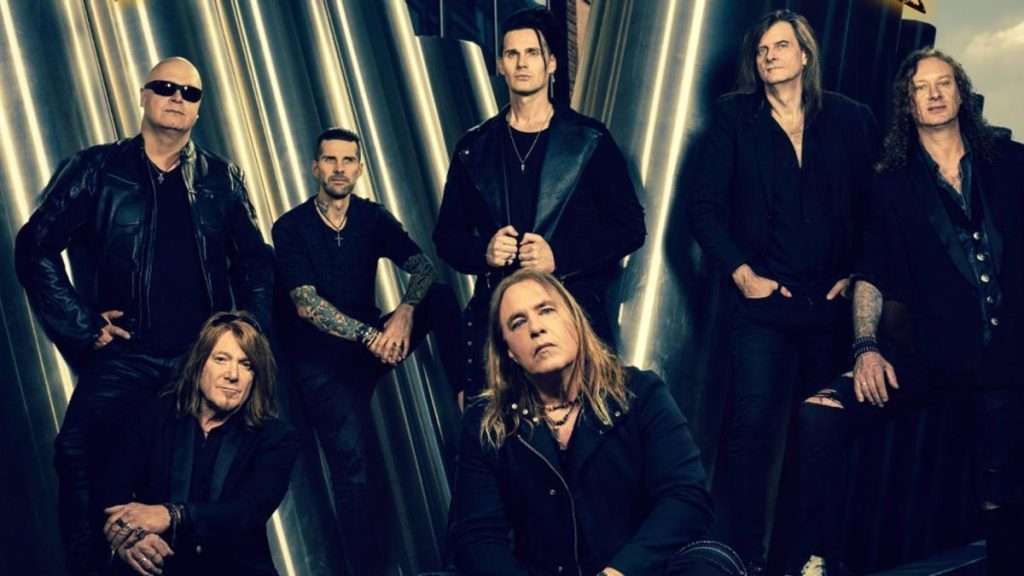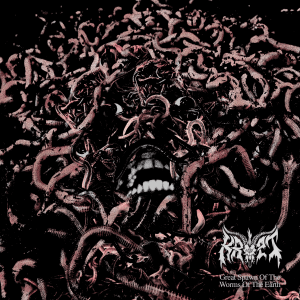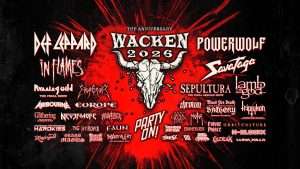Helloween: “Helloween” (2021, Nuclear Blast)


Followers of the legendary Helloween had been waiting for too many years for the return to the line-up of vocalist and guitarist Kai Hansen, godfather of European power metal and also founder of Gamma Ray, another key name for the genre, as well as the singer Michael Kiske. Although both had previously met at Unisonic, they had not returned to the project that saw them shine for the first time for nearly three decades. In this new stage for the German band, they are accompanied by the omnipresent Markus Grosskopf (bassist) and Michael Weikath (guitarist), the only two members who have always remained in the group since its creation in 1983, as well as the longest-serving vocalist. of the group, Andi Deris, guitarist Sascha Gerstner and drummer Dani Löble.
The release of the emotional single Pumpkins United in October 2017 marked the starting signal for an ambitious world tour, the Pumpkins United Reunion World Tour, in which the 2019 live United Alive was recorded. On April 2, they left even more expectantly to their audience with the single Skyfall, a brilliant introduction to what was their first album since My God-Given Right, which was released six years earlier. This self-titled Helloween, published on June 16, has been the fruit of an enormous collective effort, whose launch has been postponed due to the global pandemic. For this reason, our editors have decided to collaborate with each other, to offer you their impressions about the different songs that make up this round album. The beautiful album cover was the work of Eliran Kantor, while it was produced by Charlie Bauerfeind and co-produced by Dennis Ward.
The album starts with a glorious and well-worked Out For The Glory, an extensive cut in which the band takes its time to introduce us to the atmosphere of the album with a catchy melody that goes in crescendo until it takes on that speed that has so characterized the group. German from its beginnings. In this case, Kiske is in charge of giving voice to the first cut of Helloween with a song in the purest Keeper Of The Seven Keys style, with certain branches to the Eagle Fly Free that opens the second part of the aforementioned, especially in the chorus part. Bridging the gap with the albums that catapulted them to the top at the time, the band manages to recover that nostalgic air that we all longed for with a song that is totally effective and in no way repetitive. I wouldn’t be able to say that the album was composed to satisfy those who asked for a meeting before the live show, here everyone has done their part and they have been able to select very well which songs became part of the final cut of the album. that both the follower of his most classic period and the follower of the current sound will be satisfied. I must say that I consider myself a follower of his entire career and that, personally, the album more than delivers.
We continue with Fear Of The Fallen, another of the album’s high points, which begins in the form of a ballad, with some delicate violin arpeggios and acoustic guitar. The vocal exhibition of Andi Deris, with the collaboration in some passages of a reborn Michael Kiske, is simply unappealable. Before reaching the first minute of duration, they decide to increase revolutions, chaining solo after guitar solo, with an unmistakable aroma of their classic era, thanks especially to the return of Kai Hansen. In the final section, we briefly recover that state of initial relaxation, moments before reaching an apotheotic finale, in which the catchy chorus is resumed for the last time.
After the spectacular beginning of the album with two fast songs and in the more power metal aspect of the Hamburg-based band, the rhythm of the album slows down with Best Time. The third song from the album is also the third single taken from it and was published in lyric video format on June 18, the day of the album’s release. It is a song composed by Sascha and Andi in which the combination of the voices of the three singers of the band especially stands out.
The song begins with a powerful riff that gives way to a verse marked by Markus Grosskopf‘s bass and Dani Löble‘s drums. Kiske initially emerges as the lead singer, attacking the song in a relaxed vocal range, quickly giving way to a bridge where he shares the spotlight with Deris‘s much more raspy voice. One of the most interesting parts of this song comes with the chorus, direct and catchy, in which Kiske‘s main vocal line is answered by a second voice, in this case Hansen. The second stanza maintains the same scheme, but with the roles reversed and Deris becoming the leading voice.
A third verse follows, different from the previous ones, in which the voices of Kiske and Deris are doubled and launch the song towards a guitar solo that guides the song towards an end marked by the repetition of the chorus. Ultimately, Best Time is a song with a happy and positive tone and theme. Comparing it with other songs on the album it may seem simpler or simpler, but it is a composition that does not clash with the work as a whole and is in the most direct and carefree line of Helloween.
It is closely followed by Mass Pollution, an energetic cut with a most eloquent party atmosphere in which, once again, they demonstrate their technical capacity at its maximum splendor. Here we find the current side of Helloween led by Deris, a cut that could well have been discarded from My God-Given Right or Straight Out Of Hell but with a certain aftertaste of the most classic Helloween. And this is the sensation that one feels listening to the album for the first time, the natural way in which they have managed to combine all the elements of the stages of their career without straying from the functional formula. The chorus, as usual, sticks in your head from the first moment and you end up singing it over and over once the album is over.
The fifth song on the album, composed by Sascha Gerstner, presents a more modern sound marked by a dense rhythm and the atmospheres created thanks to the use of keyboards. Once again, the vocal lead is for Michael Kiske, although accompanied in some sections by Andi Deris as a second voice. The song, using metaphors, tells a story of heartbreak in which, in the first person, Kiske tells us the desperation when he realized that the woman he loved was a demon disguised as an angel. The heavy cadence of the song fits perfectly with its narrative, and Kiske’s interpretation especially stands out, managing to convey the feeling of frustration that the lyrics of this song raise. Angels is a song that leaves aside Helloween‘s usual optimism, but offers an interesting exercise in composition and creation of atmospheres far from the usual parameters in which the band operates.
After Angels, the album will recover the more power metal sound with Rise Without Chains, a song signed by Andi Deris and in which the weight of the vocal work falls fundamentally on him. Once again, and following the dynamics of the album, the support of the second voice becomes very relevant, in this case Kiske, who at specific moments in the song becomes the main vocalist. The song, with lyrics that talk about personal improvement and that refers to songs like I Can, stands out for the guitar work of Kai Hansen, Michael Weikath and Sascha Gerstner. Rise Without Chains displays a sample of fast riffs that lead to the central section of the song in a series of solos that take the form of a duel between the trio of guitarists.
One of the album’s high moments comes with Indestructible, a heavy and energetic cut that fights for the first position in the ranking with the forceful Skyfall. Composed by its bassist, whom we have interviewed for the occasion, Indestructible gives us the positive side of a solid and totally homogeneous formation without preambles, a masterful display of technique that results in a cut that will probably become an essential in their live performances. Only time will tell.

With a forceful distortion and the initial double scream of Andi and Michael, Robot King begins, with speed influences. It is also worth highlighting the enormous guitar work of Gerstner, a former member of his compatriots Freedom Call. The change of rhythm towards the fourth minute is interesting, in which it acquires a somewhat more melodic and epic tone, before recovering the powerful chorus, reinforced by the combination of the varied voices. Curiously, this song was going to be part of his previous album, My God-Given Right, although Weikath thought it could be reinterpreted later.
Protest and social criticism make their appearance on the album with this composition by Deris that refers to the sounds of the albums recorded by Helloween in the second half of the 90s and 2000s. Cyanide, a song closer to heavy metal per se, begins with a simple introduction that gives way to a heavy guitar riff. The vocal lead role in the song goes to Andi Deris, who on this occasion Kiske limits himself to providing backing vocals at specific moments. In addition to the guitars, the song stands out above all for the aggressive drumming performance of Dani Löble, who combines speed and strength throughout the entire song.
Down In The Dumps is introduced in a very spiritual way, with that hypnotizing synthesizer that traps us in its atmosphere. Breaking the spell is the incessant drumming of Dani Löble, who wanted to pay tribute to the much missed Ingo Schwichtenberg, using his original kit for the recording of the LP. Kiske makes it clear to us that he has returned with an extra dose of motivation, feeling his voice rejuvenated. The participation of the charismatic Hansen in the choir is also appreciated. We are probably facing the darkest choral section of the album, particularly because of its anguished lyrics: “I’m down in the dumps. “Can’t take no more.”
After the enigmatic Orbit, an instrumental song in which I have found a certain similarity to the affable Dunluce (Part 1) by the genius Gary Moore, it is time to put the final culmination to this great album with the energetic and titanic Skyfall. In addition to being the cut that preceded the announcement of this album and the first preview of it, the band reserves the last and most effective bullet in its arsenal in the chamber to finish in style, in the purest Keepers style. Twelve minutes and eleven seconds give life to one of the most epic and memorable space epics in the history of heavy metal, with permission from Dimension Hatröss of Voivod – with whom it shares no resemblance – and at some point you would even want it to extend a little more. This is where Helloween shows us once again that it is still thinking about that follower of its classic era, inserting a totally essential song that occupies one side of the vinyl, in this case double.
The pumpkins emulate in a certain way the science fiction theme that Kai Hansen has worked thoroughly in Gamma Ray, telling the story of an alien lost in the cosmos whose home planet has been completely destroyed, and to do so they make use of all their musical weapons to build an authentic space opera around the story of the Grays. Skyfall has a completely different structure: a completely accelerated start, a small dip in the middle of the song and the final high after revving the machinery to the maximum. Here they shine completely, all of them, sharing the vocal task with both Kiske, Hansen and Deris, each one contributing their characteristic and particular style. To finish, Hansen delights us with one of the juiciest nods to his career, one of those that makes you smile every time you listen to the album, and that is that the last two vocal lines of the cut pronounce the magical words “Somewhere out in space…”.
And so one of the most anticipated comebacks in history to date comes to a close, putting all the cards on the table and warning that if this works – and it seems to have worked – they will return with more material. Even so, I can’t understand the fact that Golden Times, an excellent composition, has only been included as a bonus track for the Japanese double CD edition. Written by Gerstner, it is a retrospective journey to the purely Keepers sound, in which they leave us speechless with that exchange of blows based on guitar solos. Its luminous chorus seems the perfect contrast to Down In The Dumps, motivating us to fight despite adversity. Matthias Ulmer, session musician, is in charge of the successful keyboard, well supported by Markus Grosskopf‘s bass.
Likewise, Save My Hide is in charge of closing the extra part of the album with a half-paced song that doesn’t particularly fit with the rest of the album, probably for that reason it has been discarded from the final cut. Helloween manages to deliver a song that is completely its own without many frills but that provides that added value to an album with certain ups and downs but that in its entirety more than delivers. The return of the pumpkins couldn’t have been better, and this self-titled album is proof of that.
Dr X.

![amorphis-presentan-nuevo-sencillo-light-and-shadow-de-nuevo-album-borderland-1849[1]](https://alliedforces.es/wp-content/uploads/2025/08/amorphis-presentan-nuevo-sencillo-light-and-shadow-de-nuevo-album-borderland-18491-300x159.jpg)





